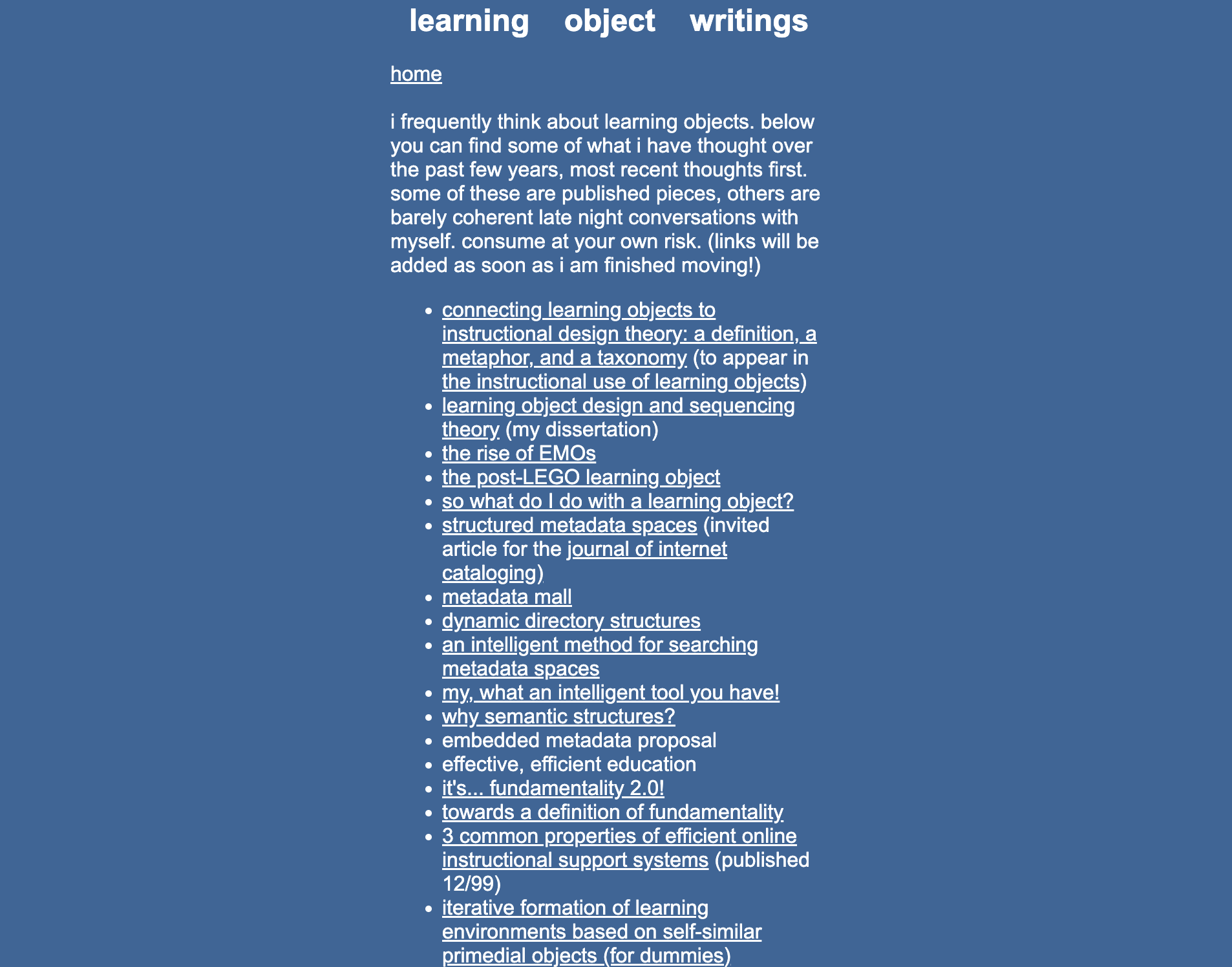As recently as the early 1990s getting your thoughts and ideas out into the world at any kind of scale required finding a publisher that would agree to publish your work. Publishers served as gatekeepers, deciding what was worth publishing and what wasn’t, typically publishing only material they thought would be commercially successful. And of course publishers typically required authors to sign over the copyright in their works to the publishers. Finding a publisher who would publish your work was incredibly rare – like being struck by lightning – and the process of publishing anything was expensive and complicated. Publishing was so difficult, in fact, that the overwhelming majority of people never even *imagined* doing it themselves.
Things started to change when the public gained access to the internet in the 1990s. This was when I first started writing writing down my thoughts about openness, educational technology, etc. and publishing them on my personal website. But this was a pretty complicated process that involved having my own webserver, writing the essays in HTML, uploading those files, and manually linking them from an table of contents kind of page. This screenshot is from my “academic” site (I had a separate personal site) circa 2000:

Then, in the early 2000s, blogging software sprang into existence. What was once quite complicated became suddenly simple. Anyone with access to the internet could publish anything they were thinking or feeling quickly and easily without needing special expertise, being subject to gatekeepers, or being forced to surrender their copyrights. Blogging software like Movable Type and WordPress radically democratized publishing. And that democratization has continued to grow and expand over the years into other publication formats (e.g., videos on YouTube, short form writing on Twitter, photos on Instagram, etc.). Just thirty short years later, “everyone has a podcast.”
For decades software development has been a similarly expensive and complicated process. The overwhelming majority of people today can’t imagine that they would ever write a piece of software. But the advent of AI software development agents like Devin and OpenDevin will democratize software development the same way that blogs democratized publishing, putting the creation of software within the reach of a dramatically larger group of people. The pieces of software people will write might start as little helper tools or small games that run on desktops or laptops, but they will rapidly expand to other formats as well, including apps for mobile devices, web services, and future AI-first hardware.
Today anyone with access to the internet can publish just about any kind of creative work quickly, easily, and inexpensively (writings, photos, videos, sound recordings, 3D models, etc.). “Tomorrow” anyone with access to the internet will be able to create programs and apps to use on their computers, mobile devices, and to publish as web services. And they will share this software with each other in a way similar to the way we share creative works with each other today. Just as there is more content published online than any human could ever hope to read / watch / listen to in a lifetime, it looks like there will be a similar explosion of software and apps. And you will probably contribute to it.
If you could easily create any program or app you could imagine, what would you make? How would that change your life? How would your life change if billions of other people had that capability, too? How can this new capability be used to increase access to educational opportunities?
You must be logged in to post a comment.